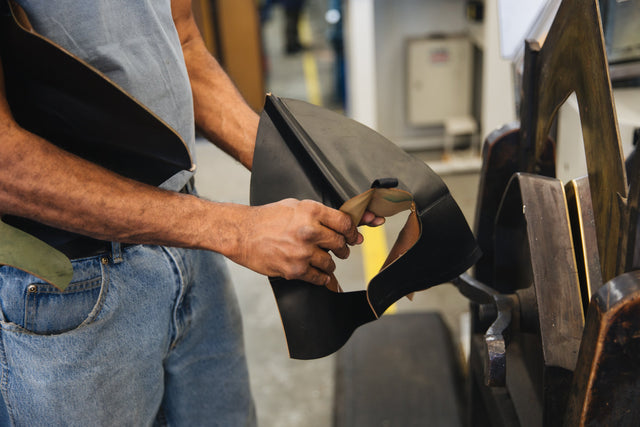Crimping
Take a close look at our wholecut Chelsea pattern and you’ll notice a subtle line running up the centre of the vamp. You’ll see this same detail on many vintage pull-on and western style boots. This line is the byproduct of a process known as crimping. During crimping a flat piece of leather is moulded through some combination of pressure, moisture and heat. This is accomplished either by machine using a metal plate, or by hand with a wooden guide in a technique known as “blocking”. This is not necessary on a lace up boot where the tongue provides easy entry for the foot and laces can quickly adjust tension. On a pull on boot however, the crimping process is essential to create adequate space through the instep and to maintain a snug, comfortable fit.
Crimping can be a difficult and nuanced process, particularly with fine grained leathers like Shell Cordovan and Calfskin. After being disappointed with the results of our current machine, we recently dusted off a 1940s version originally used by Edwin Viberg on our early Western and Romeo patterns. This manually controlled machine uses a brass plate to slowly shape the upper. The pressure and tension can be adjusted throughout the process allowing us to work confidently with delicate materials. While slower and more time consuming, this method ultimately allows us more control over the finished product and maintains the original shape developed by our founder Edwin.







